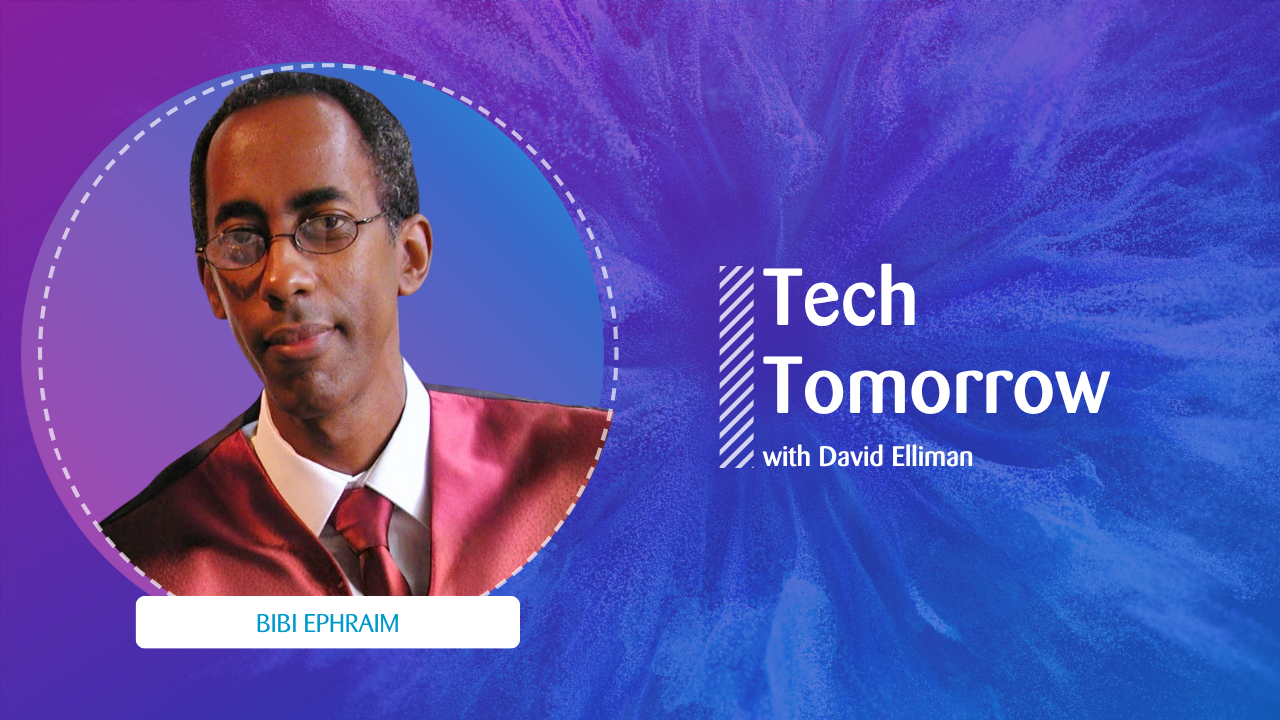The biotech industry is at a tipping point where algorithms could drive the next generation of medical breakthroughs. As AI reshapes how we discover and develop treatments, the line between digital and biological innovation is blurring. But how far can technology go before we lose the 'bio' in biotechnology?
In this episode of the Tech Tomorrow podcast, David Elliman, Zühlke’s Chief of Software Engineering, speaks with Bibi Ephraim, Head of Digital Sciences at Genentech, about the digital revolution in biotech — and what it takes to turn data into discovery.
Meet the guest: Bibi Ephraim
Bibi Ephraim is the Head of Digital Sciences at Genentech, where he leads the convergence of biology, data and machine learning in biopharmaceutical R&D. With a career rooted in engineering and biotech, Bibi has spearheaded initiatives that transform laboratory workflows into digital platforms, from applying convolutional-neural-networks to cell-line image monitoring, to embedding machine-learning models into ultrafiltration/diafiltration process control.
Bibi Ephraim brings a rare dual perspective: fluency in biotechnology operations and deep experience in digital systems.
Key takeaways from the episode
The Data foundation every breakthrough needs
'One of the biggest mistakes executives make is delegating data to IT,' says Bibi Ephraim. 'It needs to be treated as part of the business. Data creates value, and building a culture around it is key.'
AI is already accelerating drug discovery, optimising clinical trials, and enabling precision medicine. But without clean, connected, and governed data foundations, progress stalls. Poor-quality data can derail timelines, inflate costs, and even force drug recalls. According to Gartner, organisations lose an average of $12.9 million a year due to bad data; a figure Bibi Ephraim calls 'conservative'.
The takeaway? Before AI can transform biotech, data must stop being an afterthought. 'Executives need to champion data as a product,' he argues, 'not just an input.'
Collaboration over competition
AI thrives on diversity: not just in datasets, but in ideas. The pandemic showed what’s possible when organisations collaborate openly, sharing data to accelerate vaccine development. Yet, as Ephraim points out, 'Scientists are trained to be independent, even competitive. But true innovation now depends on collaboration.'
David Elliman calls this 'pre-competitive collaboration', meaning that competitors unite to solve shared challenges. 'Some problems are everyone’s problems,' he says. 'When engineers from different companies work on them, they bring unique perspectives and create more robust solutions than any one organisation could alone.'
To make this work, leaders must define clear boundaries, defining what’s shared and what stays proprietary, and dedicate real investment to shared innovation. Collaboration isn’t a side project anymore; it’s strategic infrastructure.
From wet labs to digital twins
The transformation isn’t theoretical. AI is already redefining the lab itself.
Digital twins — virtual replicas of biological systems — are allowing scientists to run simulations before physical experiments begin. Instead of testing thousands of molecules in a lab, AI can predict which ones will work best, dramatically accelerating development.
“The core of the shift is the recognition that biology is now essentially a form of information technology. DNA is a code. Proteins are complex machines built from copes; disease is, essentially you can treat it as a software bug and a biological system.”
Generative AI takes this even further, designing entirely new molecules from scratch. The result? Faster, smarter drug discovery, and a feedback loop where digital models and lab experiments refine each other in real time.
The race to scale responsibly
The question isn’t whether biotech will go digital; it’s how fast. Bibi Ephraim predicts that companies who move quickly to integrate AI and build data maturity will become the clear winners. 'Scaling isn’t the problem,' he says. 'Timing is.'
“One of the most common mistakes that is being made by executives is to delegate data initiatives to solely their informatics or IT departments. It needs to be treated as part and parcel of the business. It needs to be understood that this is something that's going to create value and the establishment of single sources of truth.”
But with rapid progress comes responsibility. Explainability (understanding how AI reaches its conclusions) remains a major hurdle in healthcare. Trust, transparency, and regulation will define which innovations succeed.
Still, Bibi Ephraim remains optimistic: 'Digital will lead the way. The biological will validate. Together, they’ll create a new paradigm.'
The future is hybrid
AI may never replace biology entirely, nor should it. But it’s already reshaping every stage of biotech innovation, from molecule modelling to patient outcomes. As David Elliman puts it, 'Digital enhances the biological. The two evolve together.'
The future of biotech isn’t one of replacement, but of reinforcement, where digital intelligence accelerates human insight. The next breakthrough won’t just be biological. It will be born digital.




